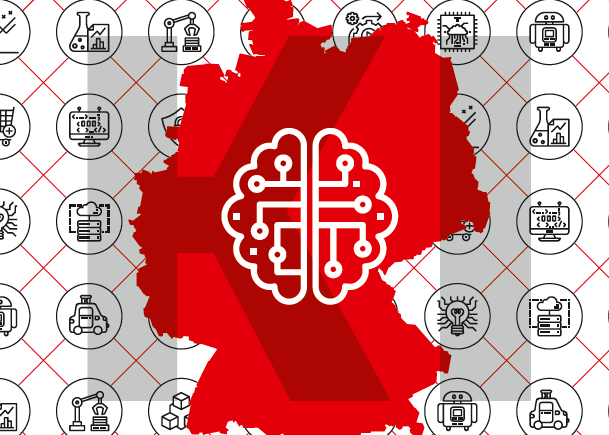A study by eco, Arthur D. Little and Vodafone Institute shows that the use of artificial intelligence has a potential of almost 500 billion euros for the German economy by 2025.
By the year 2025, artificial intelligence (AI) will, above all, strengthen and improve the effectiveness of human activities – but will not replace them. This is the result of a study by eco – Verband der Internetwirtschaft e.V. and Arthur D. Little, supported by the Vodafone Institute. According to this study, the most significant potential of AI for the German economy lies in areas that optimise the effectiveness and efficiency of work processes – primarily through analytical data-driven support, such as chatbots, analyses of customer flows or knowledge management.
Based on 150 use cases, it was determined which concrete effects can be expected from AI for companies in Germany. The finding: If AI is used across the board, growth in gross domestic product of over 13 per cent by 2025 (compared to 2019) is realistic. This corresponds to a total potential of approx. 488 billion euros. Of this, approximately 330 billion euros (70 %) are accounted for by cost savings and about 150 billion euros (30 %) by sales potential for all sectors.
The sectors that benefit most are Retail & Consumer, Energy, Environment & Chemicals with just under 100 billion euros each, and Telecommunications, IT & Media with around 71 billion euros. The authors see particularly great opportunities for industry 4.0: with just over 50 per cent (EUR 182.5 billion), the highest potential for cost savings lies in supporting production with AI.
Inger Paus, Managing Director of the Vodafone Institute, sees a particular need for action on the subject of acceptance and openness to new technologies: “The economic and business management of the potential of Artificial Intelligence is huge – but we also have to lift it. In an international comparison, Germans are particularly sceptical about automation and algorithms. It is worrying that AI is not yet an issue for most German companies, especially for medium-sized companies.”



